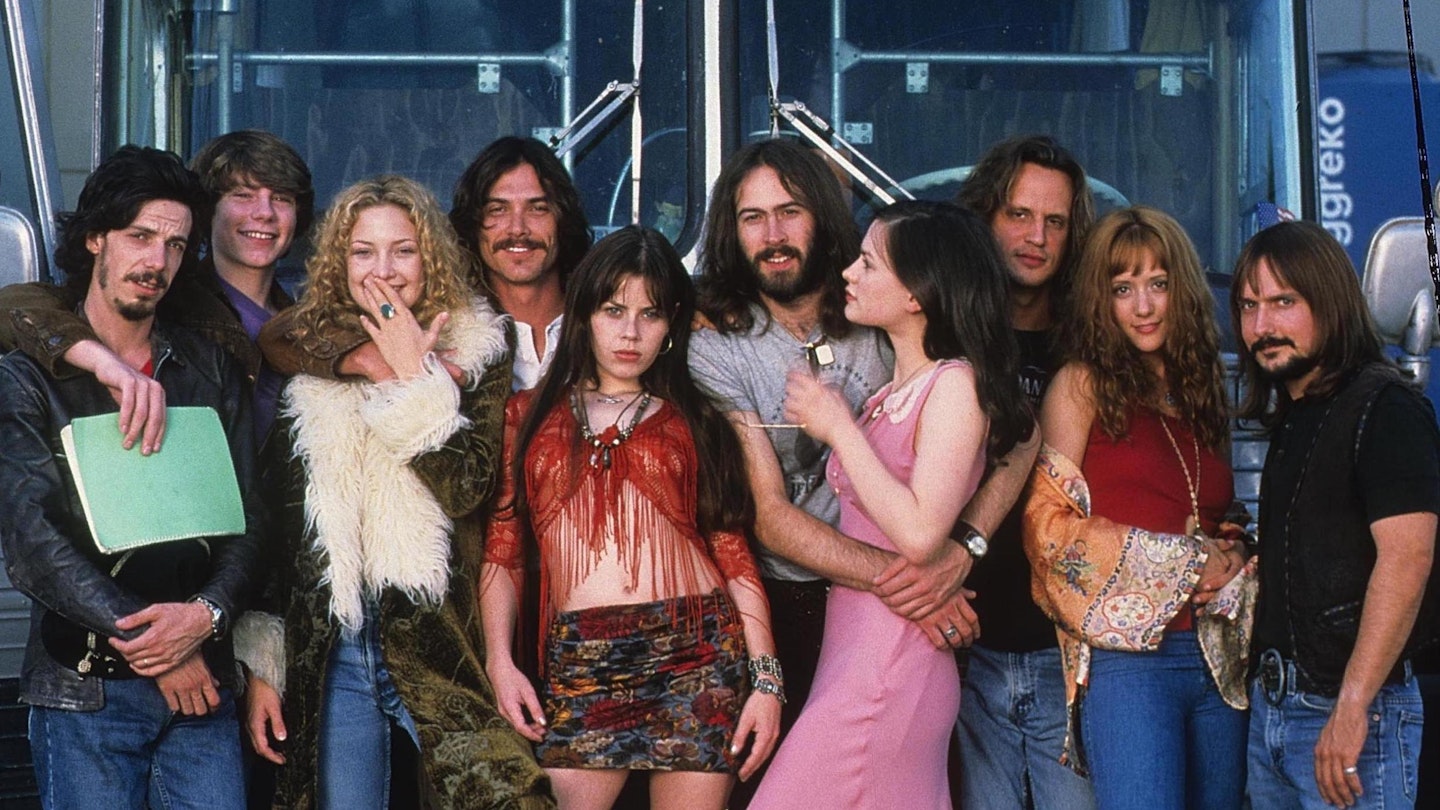Almost Famous, Cameron Crowe's love letter to rock 'n' roll, was released 20 years ago today. To celebrate this auspicious occasion, we present here the original Empire interview with Crowe , conducted just before the film's release back in 2000.
———
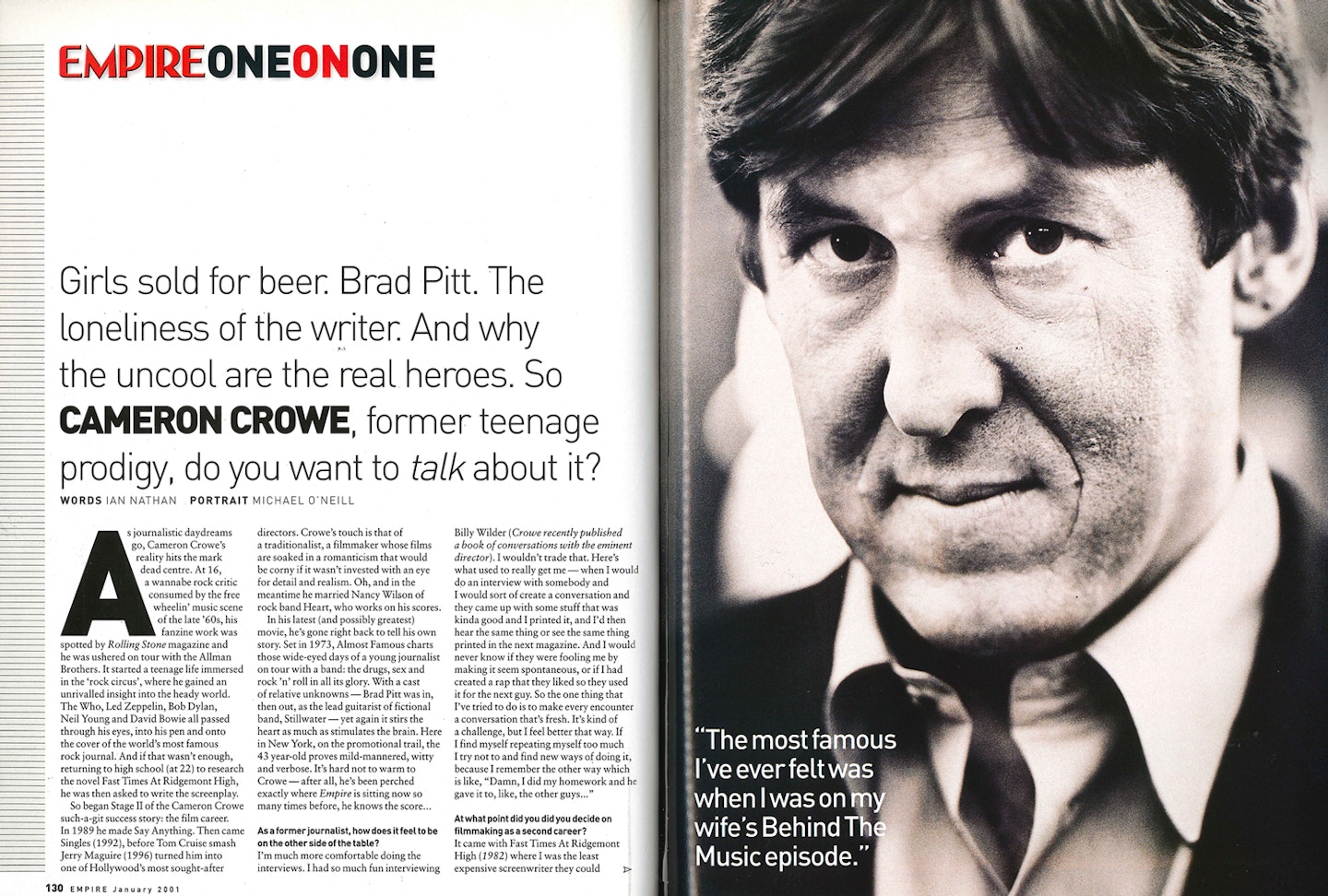
As journalistic daydreams go, Cameron Crowe's reality hits the mark dead centre. At 16, a wannabe rock critic consumed by the free wheelin' music scene of the late '60s, his fanzine work was spotted by Rolling Stone magazine and he was ushered on tour with the Allman Brothers. It started a teenage life immersed in the 'rock circus', where he gained an unrivalled insight into the heady world. The Who, Led Zeppelin, Bob Dylan, Neil Young and David Bowie all passed through his eyes, into his pen and onto the cover af the world's most famous rock journal. And if that wasn't enough, returning to high school (at 22) to research the novel Fast Times At Ridgemont High, he was then asked to write the screenplay.
So began Stage II of the Cameron Crowe success story: the film career. In 1989 he made Say Anything. Then came Singles (1992), before Tom Cruise smash Jerry Maguire (1996) turned him into one of Hollywood's most sought-after directors. Crowe's touch is that of a traditionalist, a filmmaker whose films are soaked in a romanticism that would be corny if it wasn't invested with an eye for detail and realism. Oh, and in the meantime he married Nancy Wilson of rock band Heart, who works on his scores.
In his latest (and possibly greatest) movie, he's gone right back to tell his own story. Set in 1973, Almost Famous charts those wide-eyed days of a young journalist on tour with a band: the drugs, sex and rock 'n' roll in all its glory. With a cast of relative unknowns - Brad Pitt was in, then out, as the lead guitarist of fictional band, Stillwater - yet again it stirs the heart as much as stimulates the brain. Here in New York, on the promotional trail, the 43 year-old proves mild-mannered, witty and verbose. It's hard not to warm to Crowe - after all, he's been perched exactly where Empire is sitting now so many times before, he knows the score ...
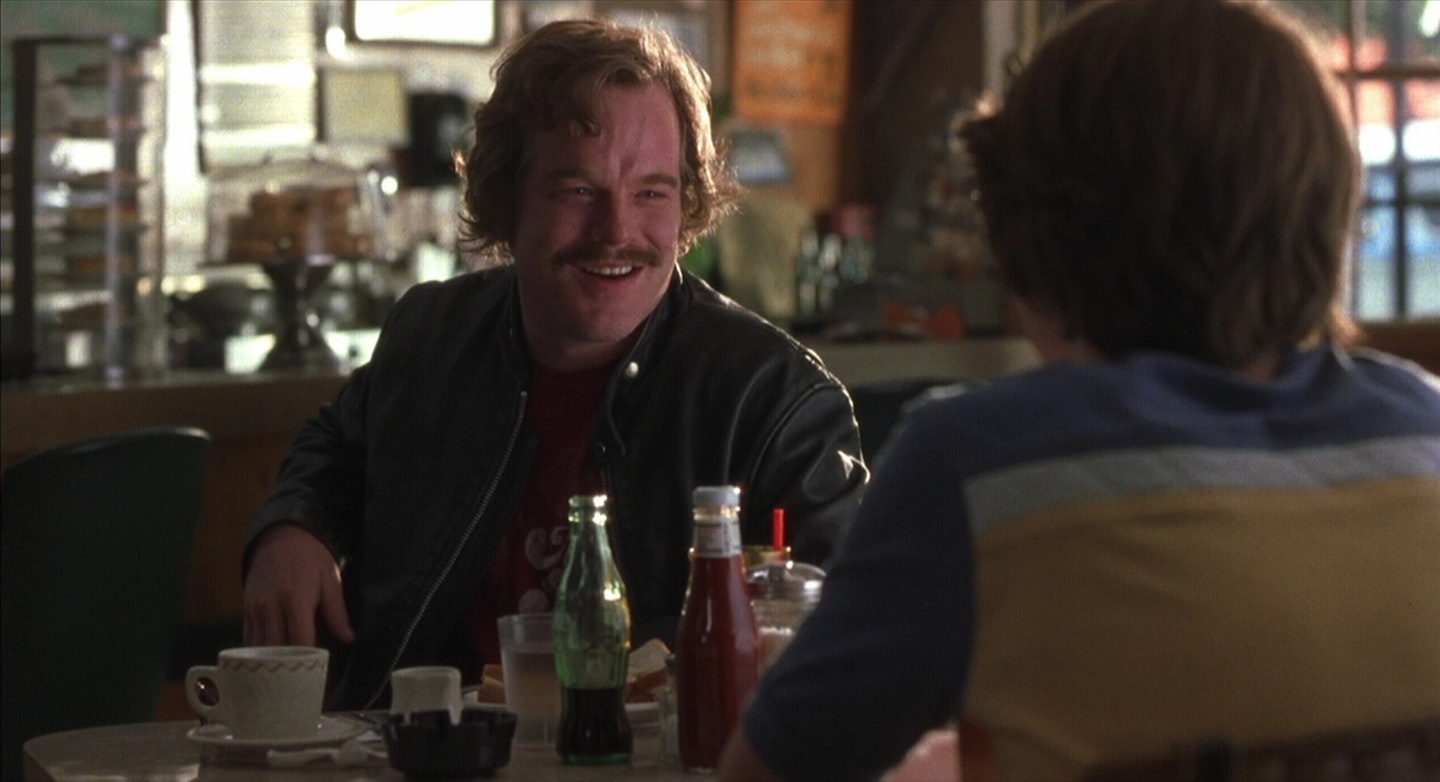
As a former journalist, how does it feel to be on the other side of the table?
I'm much more comfortable doing the interviews. I had so much fun interviewing Billy Wilder (Crowe published a book of conversations with the eminent director). I wouldn't trade that. Here's what used to really get me - when I would do an interview with somebody and I would sort of create a conversation and they came up with some stuff that was kinda good and I printed it, and I'd then hear the same thing or see the same thing printed in the next magazine. And I would never know if they were fooling me by making it seem spontaneous, or if I had created a rap that they liked so they used it for the next guy. So the one thing that I've tried to do is to make every encounter a conversation that's fresh. It's kind of a challenge, but I feel better that way. If I find myself repeating myself too much I try not to and find new ways of doing it, because I remember the other way which is like, "Damn, I did my homework and he gave it to, like, the other guys... "
At what point did you did you decide on filmmaking as a second career?
It came with Fast Times At Ridgemont High (1982) where I was the least expensive screenwriter they could find, and I tried to teach myself how to write a screenplay. And the movie got made. If it hadn't found an audience it would have ended there.
Did Jerry Maguire change things for you?
It changed everything, because before Jerry Maguire there was a feeling that maybe you'll get some good reviews, but will anyone ever actually come? I was starting to hear that a lot. Even after making Jerry Maguire, there was a feeling at the studio that it was a good movie but that it might be a so-called - I'd never heard this phrase before - "in-between movie" for Tom Cruise. They always say, "You have no stars," and so finally you get Tom Cruise and they say, "Well, isn't it an in-between movie?" and you kind of go, "Woah." Yeah, it changed everything.
Why did it take you so long to get Almost Famous to the screen?
I wrote poor quality versions of it in the '80s. It was a lot different, it came together really over the last couple of years. The idea was floating around for a long time. How could I do something that was personal but not indulgent, and might catch what it felt like to be at the rock circus back then?
When we were making it I was wondering, "Is this a high profile form of therapy that's going on here?"
Was it hard to cast someone as yourself?
Yeah, I hid from it for a long time. I would work so hard on the others - I'm closing in on the part of the third groupie, the hotel lobby bellman... And people would eventually tell me, "You have to get serious because there is a character in every scene and he's based on you, and you had better start casting him." There were some very awkward sessions where a guy would come in who sort of looked like you and you're looking at each other like, "What am I meant to say now?"
So what was the final factor that made you think, "Yeah, this guy is it"?
I loved the idea of the main character in this movie who would just clam up at a certain point and just look at everything, and we could put the camera on a guy like that and his face would tell the story. Patrick (Fugit) was the first guy that I was interested in seeing his face. A lot of the kids had picked up bad habits in commercials and TV shows and felt like they had to do a lot of stuff and Patrick, for whatever reason, did less, and it was real interesting. Of course, he didn't look like me, which was a help.
How frustrating was having Brad Pitt pull out? Did it change your thinking completely?
I've had a lot of people pull out. I've tried to get Johnny Depp to do almost everything I've ever written, and it almost happens and then doesn't. But the Brad thing got a lot of publicity because it got out early that we had been talking to him. And it was disappointing that it didn't happen. There are a lot of movies that try to get Brad Pitt and almost get him or don't. This one is better the way it turned out and, believe me, I spent a lot of time thinking about whether to make the movie and each permutation, and this is better because it doesn't try to be Jerry Maguire, doesn't try to be a big, star-driven movie. So I'm happy for it. But somebody is going to get the great performance out of Brad soon - he was hilarious working on this part. I think it was out of scale with the movie.
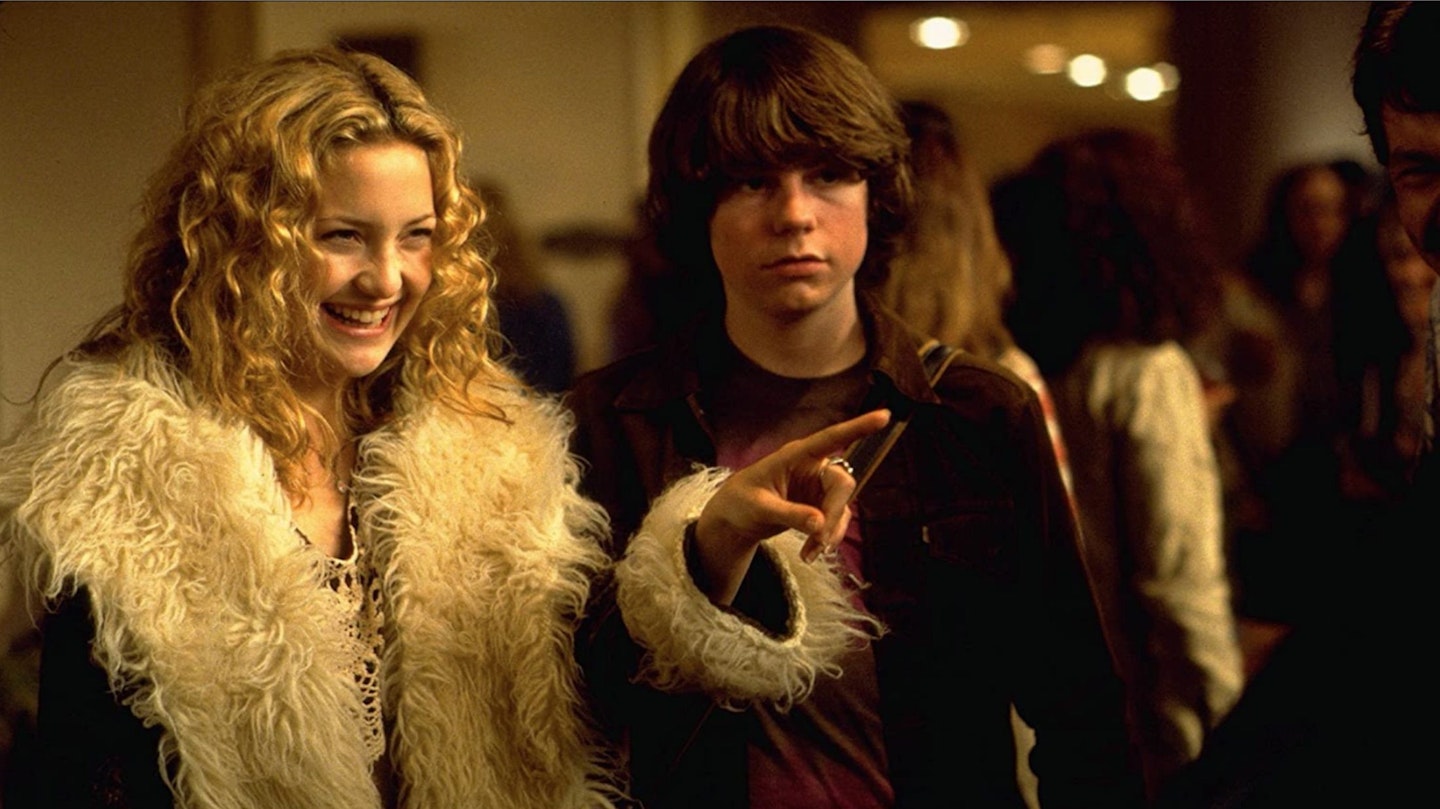
Are there painful elements in revisiting the past?
On the surface there's a little bit of a pop song quality to it, but I like that both sides are there. Yeah, there was a lot of pain, especially with a lot of the stuff about my family. It's good that we can all get together now and watch the movie and see people laughing about the movie because when we were making it I was wondering, "Is this a high profile form of therapy that's going on here?" and how embarrassing that would be. But I have always loved the personal movies of filmmakers that I love, so hopefully I captured a little bit of those movies.
Were there things that you thought, "I can't actually put that in the movie" - things that went on that are too dark or too personal?
There was cruelty to people, but there's cruelty to people in this movie - Penny Lane (Kate Hudson) is sold for beer. Yeah, there was an actual girl who was sold for beer. I'll never forget her reaction to finding out she was sold to a band for cheap beer. That was cruel. So I think there are two ways to tell that story.
You can do it in the way we did, or you can do it in the way where she doesn't throw a mask on her face, she just breaks down and gets overly emotional or tries to kill herself on the spot. I feel like I've seen that movie, but I haven't sent the girl who I also knew, who just let the mask slip a little bit and then put it back up. If I hadn't got Kate Hudson I might not have gotten the version that I really wanted to do. She has the ability to do it. You don't want to sugar-coat things and I really do think that the movie is worth checking out a second time to see some of the darker stuff. If you missed it, it's there.
How do you want people to react to the film?
You know how music can change your life? You know how on a certain day, hearing a song in a certain way can make you feel one thing or another and it will change your life? I want people to leave the movie remembering, feeling a little bit of the way they feel when they hear a song that they feel was written just for them. That was what I was chasing. That's why I played music so much when we were filming; made them listen to music. The movie has made some people feel like it was made for them - which is everything to me. This one is hopefully like the records that I always loved that made me feel like they were made just for me. I thought The Who made Quadrophenia for me and no-one else was ever going to get it like me. But that's what it is to be a fan.
Did you ever worry about drifting into Spinal Tap territory?
Daily. Because you can't do it better than Spinal Tap, and this movie attempted to be honest and somewhat accurate, and they were accurate in a hilarious way that you just don't want to go down that road. There's one scene that's quite Spinal Tap, with the T-shirts, but we couldn't make the movie without a band argument, came on!
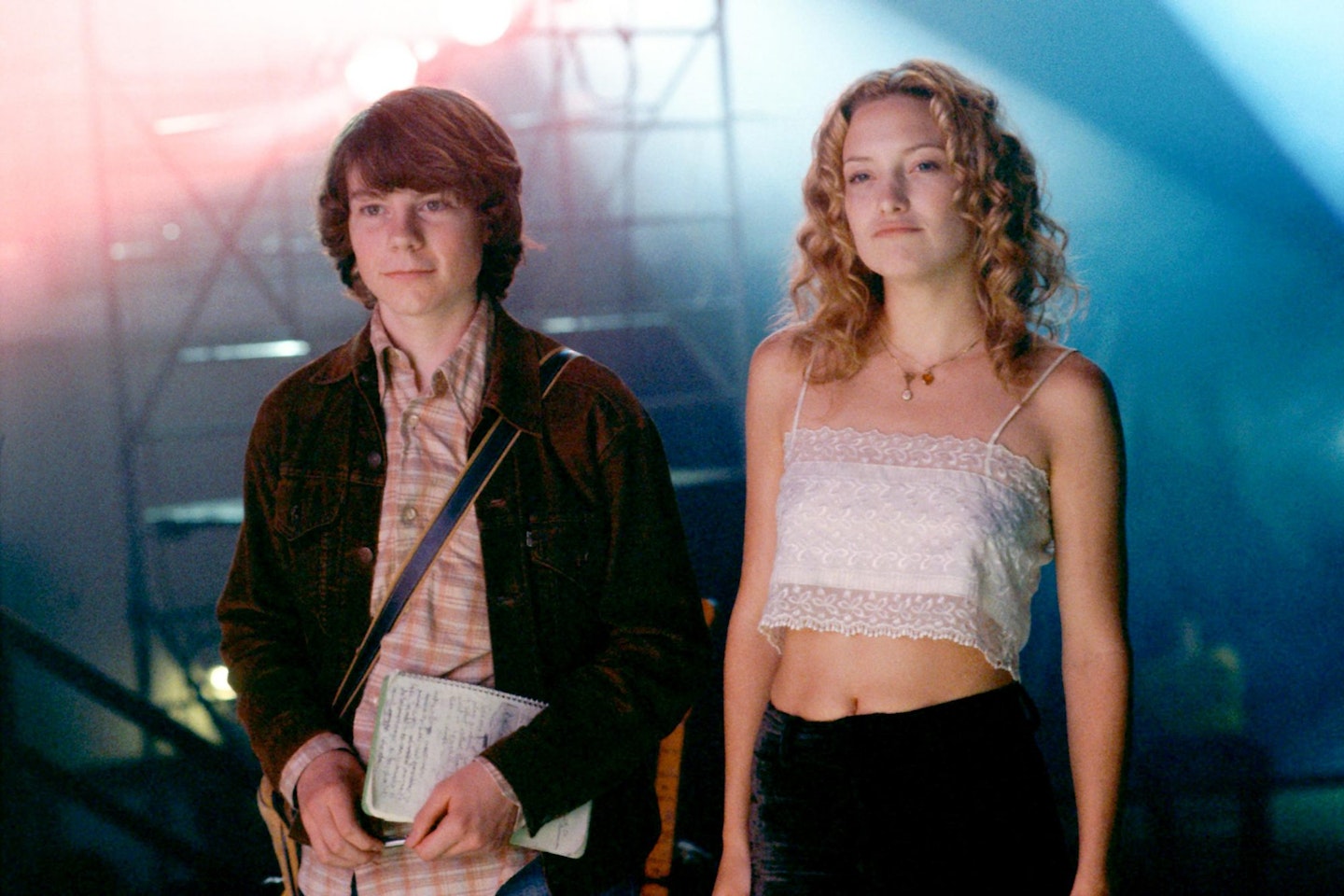
As much as music, the film is a love song to journalism...
Yeah, thank you for noticing it. I just love that quality that happens in the hallway, after that plane flight, when Patrick waves goodbye because he has to go home and write the story now. How many times I felt that they go on and the circus goes on and I have to go and write my despatch from the front. Was it real, what I was a part of, or was I taken for a ride for what I might do to serve the band? I'm so happy that Philip Seymour Hoffman wanted to do that about the loneliness of Lester Bangs (the real-life legendary rock critic portrayed in the film), the loneliness of the writer. How many nights - I know you've been through this -are there where your friends are all going out partying and hanging out doing this and that, and you've got to stay home and write? And you say, "I've got to stay home and work tonight."
Are you the eternal romantic?
The next one (Vanilla Sky) may break the trend, I'm afraid - we'll see. Yeah, yeah the battered idealist is the character that I keep returning to... This is probably the end of that chapter. This is sort of the distillation of a lot of themes. I think I'm writing about something else and it ends up being like that, but that's cool. Paul Westerberg is one of my favourite songwriters and his songs always end up being a little bit like the rumpled romantic in search of the angel with the broken wing.
You've experienced being both the journalist and sceptic, and then the A-list Hollywood director - how do you marry them up?
I'm pretty anonymous, very anonymous. The most famous I've ever felt is when I was on my wife's Behind The Music episode. But my role is always as a journalist and it's always going to be that way. The day you buy into, "I am worthy, these are my gifts to you as an artist," you're dead. I don't know who I would be as a filmmaker or a screenwriter if I couldn't be an anonymous observer of what's going on. That's what scares me about any writer whose work I've followed, who goes out and waves his hand and says, "Hey, look at me!" I think the next step is the walk off a very steep cliff. The best thing for me is sitting and watching people, just glimpsing life and hoping you can catch a little bit of it in a movie. Empire seemed to really get Jerry Maguire for what it was. Jerry Maguire was about feeling kicked out of a family and Empire I always felt, in what I read, got that it wasn't a commercial juggernaut, and I didn't ever want to buy into the commercial juggernaut perception of Jerry Maguire. I just want to keep doing personal movies that hopefully make people think, "That happened to me." If people notice a few of those things about this movie I'd be really happy.
Are you cool?
No, no, I don't feel cool. I almost feel like if you ask yourself that question, you'll never be cool. The true cool guys will be above the question. But I love celebrating the awkwardness that even the cool guys go through. And the awkwardness is what is most interesting to me, and I like to wave the flag for the people that don't feel like they can control the room, don't feel like they're the best-looking people around, and it's good to tell their story. It's the only story I know.
